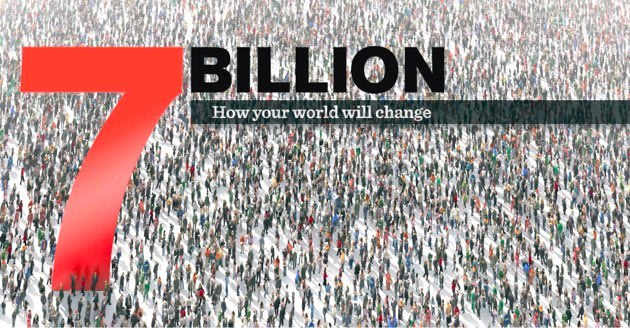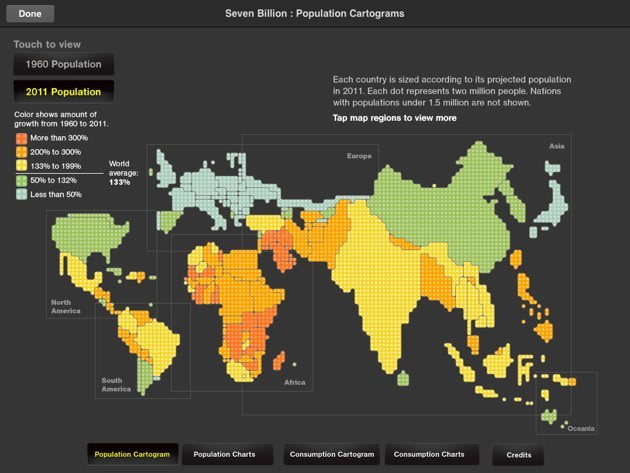
The world's population boomed at an exponential rate in the last century
While it's impossible to pin down exactly, October 31 marks the symbolic date that the human population passes the 7 billion mark. Since it's impossible to track dynamic population data on such an exact level, according to demographers at the United Nations Population Division, October 31 is the designated milestone.?The estimated date has a bit of leeway: Our race might have already exceeded the number a few months ago, or it could still be yet to come.
The number is notable for many reasons. Not only does it give us pause, highlighting world hunger and suggesting that we should conserve natural resources now more than ever, but the 7 billion mark indicates an alarmingly exponential trend in human population growth. Roughly half of the world's current population was added just in the last 40 years, and the planet has added 1 billion new inhabitants since 1999. For perspective, from the beginning of human history, our race hit the first 1 billion milestone in 1807. In the 1900s, breakthroughs in medicine led to increased longevity, and the human race was off on an exponential spike that shows no signs of flattening out. As population-dense urban centers balloon to unbelievable proportions, even the most basic resources like food and water become more challenging to distribute.
If you're interested in learning more about what the 7 billion means for our planet, National Geographic offers a companion app to its special year-long series on the milestone, pictured below. Download it and explore interactive charts, graphs, and galleries that illuminate just how the human race became 7 billion strong ? and what our future might look like if we remain on the same explosive track.

Population increases since 1960
[via USA Today, Los Angeles Times]
This article originally appeared on Tecca
More from Tecca:
today show anna chapman veterans day kim kardashian herman cain ghost hunters generators
No comments:
Post a Comment